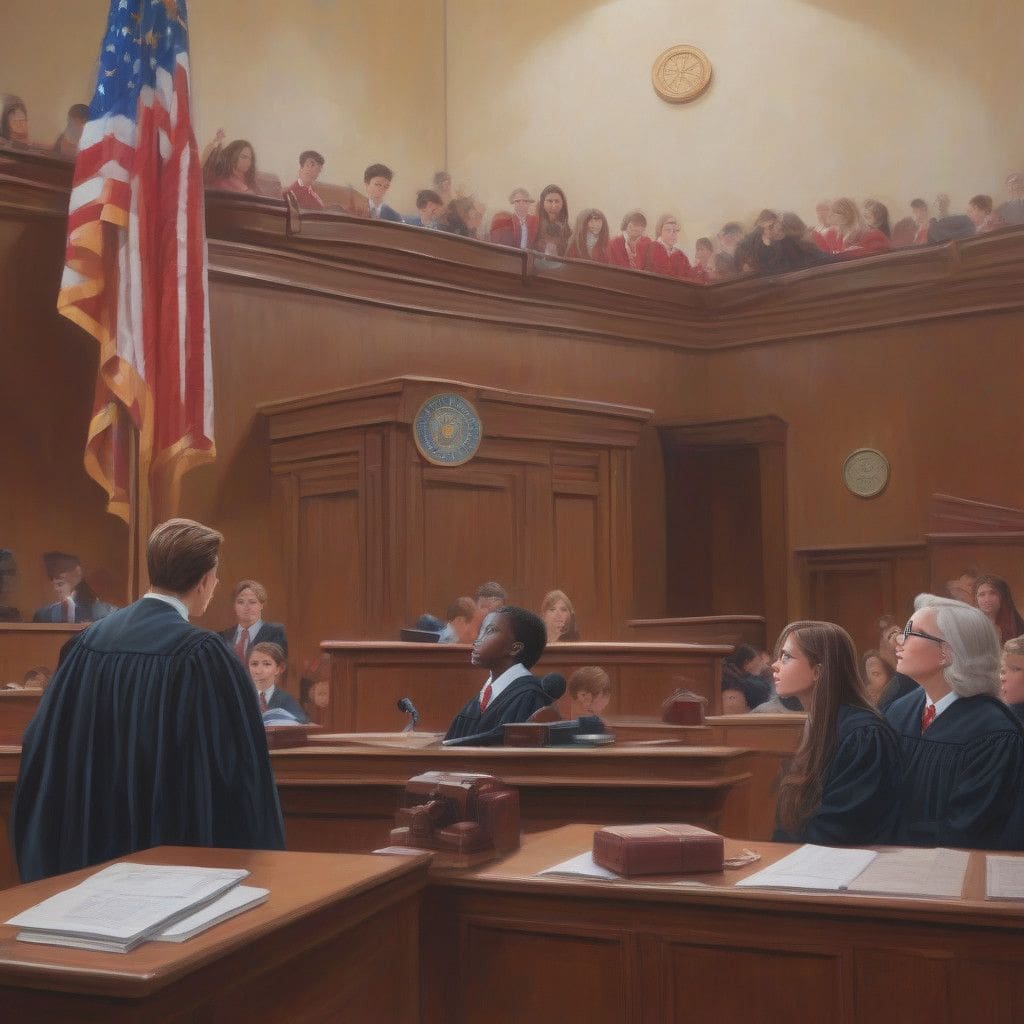In a significant legal development, a federal judge has placed a temporary halt on Utah’s new social media law, which aimed to protect minors by regulating their online interactions. Chief US District Judge Robert Shelby granted a preliminary injunction, asserting that the law could violate First Amendment rights by excessively limiting free speech for social media companies. This ruling reverberates across the United States as states grapple with the complex intersection of protecting vulnerable populations and upholding constitutional rights.
The law, scheduled to take effect on October 1, mandated that social media platforms verify users’ ages and impose strict regulations on accounts associated with minors. It was designed in part to shield younger users from the purported mental health impacts of social media, a concern that has taken center stage in public and political discourse. Proponents of the law, including Utah Governor Spencer Cox, envisioned it as a proactive measure to address rising anxiety, depression, and other mental health issues reported among youth engaging with social media.
However, the legal action was initiated by NetChoice, a trade association representing major technology firms such as Meta (formerly Facebook), YouTube, Snapchat, and X (formerly Twitter, previously known as Twitter). NetChoice argued that the law inappropriately singled out social media companies while exempting other internet platforms, resulting in uneven regulatory burdens that contravene free speech protections. The court found these arguments compelling enough to issue the temporary injunction, emphasizing that the law appeared to impose content-based restrictions, which typically face heightened scrutiny under constitutional law.
Utah Attorney General Sean Reyes expressed disappointment with the ruling but reaffirmed the state’s commitment to protecting children. He announced a review of the decision and hinted at potential further legal strategies to advance the state’s interests. This reflects a growing trend among states to introduce legislation aimed at safeguarding minors in the digital landscape, a move often met with legal challenges from tech industry groups.
The implications of this ruling extend beyond Utah. Similar laws have been enacted or proposed in other states, including California, Texas, and Arkansas, many of which have also faced legal challenges. This ongoing debate over social media regulations highlights the difficulties lawmakers encounter when attempting to craft effective legislation that achieves the dual goals of protecting children while maintaining respect for free speech.
Chris Marchese, the director of NetChoice’s litigation center, heralded the injunction as a pivotal victory. He contended that the law was fundamentally flawed and ought to be permanently invalidated. The organization argues that any approach to curb harmful online behavior among minors must consider the linear relationship between regulation and the preservation of free expression.
The ruling underscores a crucial aspect of contemporary governance: navigating the obligations to protect public welfare without encroaching on individual rights. Legal frameworks must evolve alongside technological advancements to strike this balance effectively. As legislators continue to push for protective measures in response to growing concerns about mental health and social media, the courts will likely remain a critical battleground for these contentious issues.
Furthermore, studies on the effects of social media on youth mental health offer a mixed narrative. While some research suggests a correlation between social media use and mental health challenges among adolescents, other studies argue that the relationship is complex and influenced by various factors, including pre-existing conditions and the manner of social media engagement. This ambiguity complicates the discourse on regulation, emphasizing the need for comprehensive strategies that incorporate education, awareness, and technological innovations.
As states like Utah look toward legislation to address social media’s impact on minors, the legal outcomes of these initiatives will significantly influence the future digital landscape. Policymakers must carefully craft laws that not only aim to protect young users but also respect the freedoms underpinning online communication. This situation stands as a reminder of the fluid dynamics between technology, regulation, and rights in modern society, where each decision carries the weight of potential implications across multiple dimensions.
The ongoing judicial scrutiny of such laws reflects a broader dialogue about the role of government in regulating online spaces. With numerous states grappling with similar issues, attention will remain focused on how legislators can formulate effective frameworks that prioritize children’s safety while honoring the principles of free expression.












